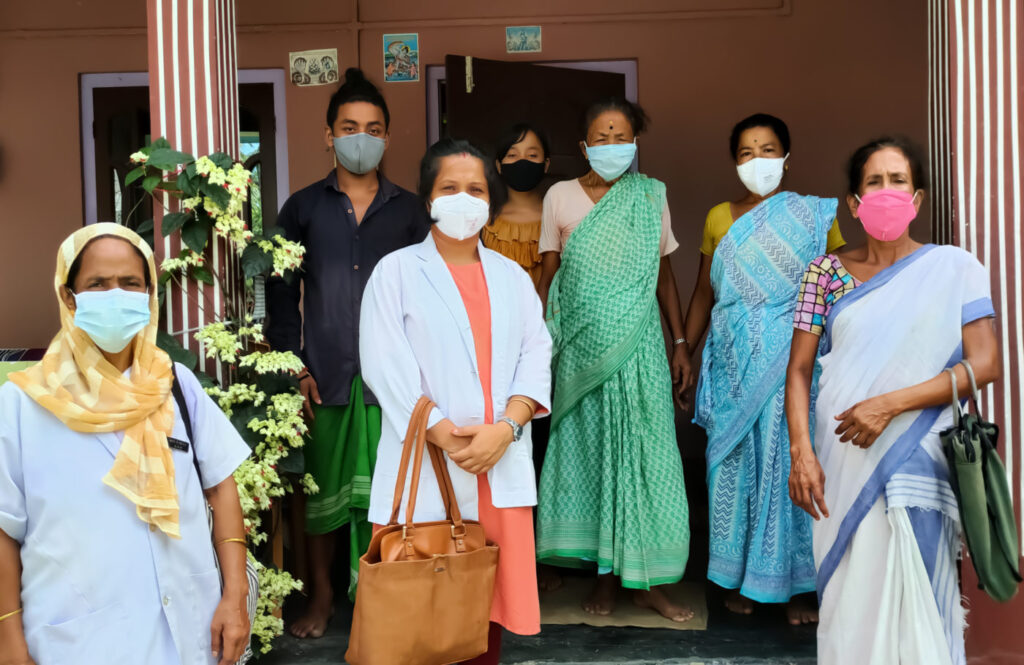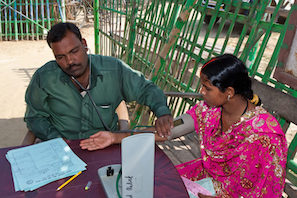About
The India Digital Health Network (IDHN) White Papers are an ongoing series of publications that respond to India’s evolving digital health ecosystem architecture and data protection laws. Our papers have helped shape the patient-centric federated API-enabled architecture of India’s evolving digital health platforms.
White Papers

Healthcare Professionals Registry
August 3, 2021
By Abijeet V Waghmare, Akhil Malhotra, Angshuman Sarkar, Bharat Kalidindi, Dhinagaran D, Ryan Fernandez, Satchit Balsari, Sehj Kashyap, Tony Raj, Verghese Thomas
On June 22, 2021, the National Digital Health Mission (NDHM) and National Health Authority (NHA) of India released a consultation paper on its proposed Professionals Registry, a vital public good building block of the national digital health ecosystem. IDHN recommended that enrollment be required in phased manner; the registries be tiered; verifications be time-bound, distributed and prioritized; scope of the registries be significantly broadened.

Healthcare Facilities Registry
August 3, 2021
By Abijeet V Waghmare; Akhil Malhotra; Angshuman Sarkar; Bharat Kalidindi; Dhinagaran D; Ryan Fernandez; Satchit Balsari; Sehj Kashyap; Tony Raj; Verghese Thomas
On June 22, 2021, the National Digital Health Mission (NDHM) and National Health Authority (NHA) of India released a consultation paper on its proposed Facilities Registry, a critical building block of the national digital health ecosystem under development. In response to request for public comment, the India Digital Health Network (IDHN) at Harvard’s Lakshmi Mittal South Asia Institute submitted a response drafted through a collaboration of domain experts from India and the US.

Responses to the Government of India’s Joint Parliamentary Committee’s Consultation on the Personal Data Protection Bill
February 1, 2020
By Abhijeet Wagmare, Adrian Gropper, Angshuman Sarkar, AV Sethuraman, Clay Heaton, Geetika Sethi, Guriqbal Sngh Jaiya, Harpreet Singh, Jimmy Anthony, Nivedita Saksena, Rahul Matthan, Satchit Balsari, Shrey Desai, Sneha Vaidhyam, Supten Sarbadhikari, Tarun Khanna, Tony Raj
The IDHN team submitted comments to a Joint Committee of the India Parliament on the 2019 Personal Data Protection Bill, which aims to protect the personal data of individuals throughout India. In our comments we highlighted the implications of this law for health data and academic research being undertaken in the country.

Response To The Invitation For Public Comment National Digital Health Blueprint
August 4, 2019
By Abhijit Gupta, Abijeet Waghmare, Adrian Gropper, Angshuman Sarkar, A V Sethuraman, Devesh Varma, Dhruv Pandey, Harpreet Singh, Jimmy Antony, John Halamka, Namrata Arora, Nivedita Saksena, Rahul Matthan, Satchit Balsari, Sneha Vaidhyam, Sunita Nadhamuni, Supten Sarbadhikari, Tarun Khanna, Tony Raj, Vivek Divan
In comments submitted to the Ministry of Health and Family Welfare in 2019 on its proposed National Digital Health Blueprint (NDHB), we recommended the adoption of Regulatory Sandboxes. These are controlled testing environments within which existing regulations may be temporarily relaxed to allow experimentation for novel technologies. They provide the enabling conditions that administrators need in order to test new solutions in subsets of populations in a responsible, controlled, and monitored real-world environment, before mandating change at scale. In August 2020, the National Health Authority announced the “NDHM Sandbox,” allowing integration and validation of third-party software by partnering with NDHM APIs.

Responses To The White Paper Of The Committee Of Experts On Data Protection Framework For India: A Lens On Health Data
February 1, 2018
On November 27 2017, in response to the white paper published by the Committee of Experts on Data Protection Framework for India, we recommended that data protection law encompass health data protection; systems that ensure privacy by design will fare better than systems based on consent and notice; data portability be interpreted as portability of structured health data; anonymization and aggregation over de-identification for securing data; and fiduciary responsibility of data controllers to the individual.